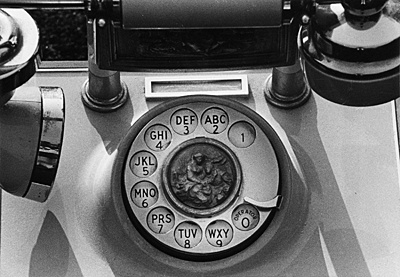All Nonfiction
- Bullying
- Books
- Academic
- Author Interviews
- Celebrity interviews
- College Articles
- College Essays
- Educator of the Year
- Heroes
- Interviews
- Memoir
- Personal Experience
- Sports
- Travel & Culture
All Opinions
- Bullying
- Current Events / Politics
- Discrimination
- Drugs / Alcohol / Smoking
- Entertainment / Celebrities
- Environment
- Love / Relationships
- Movies / Music / TV
- Pop Culture / Trends
- School / College
- Social Issues / Civics
- Spirituality / Religion
- Sports / Hobbies
All Hot Topics
- Bullying
- Community Service
- Environment
- Health
- Letters to the Editor
- Pride & Prejudice
- What Matters
- Back
Summer Guide
- Program Links
- Program Reviews
- Back
College Guide
- College Links
- College Reviews
- College Essays
- College Articles
- Back
The Phone
Here’s a thought I had during physics class today;
Imagine that it’s the 1960’s (When all those crazy “things” were happening) and you volunteer for one of those psychology experiments that were all too common in that time period…
You are lead into a room that has no windows and white walls (What were you expecting? A vibrant, colored patch of wall with the rest being windows?). In the middle of this room that seems to be shrinking with every step you take is a table and a chair. On this table is a red telephone.
The telephone (which looks like a prop straight out of a movie that featured the oval office) is the kind that you have to insert you finger into the hole and spin the wheel until the number you want has been selected.
You are instructed to sit down. A thought comes over you that there are no monitoring systems present- no visible cameras or audio recorders.
“There is only one task for this sitting” the woman that brought you into the room says. She looks like this is her first time conducting the experiment-shaky hands, full of emotion. You know the type. The type that really does not want you to fail.
“You are not, under any circumstances, to answer the phone.”
‘Oh my god’ you think. ‘Not another one of these cliché’s..’ But you make it clear you understand your objective, and the woman leaves you. She gives no indication of how long this will take, or when she will come back. She also said nothing about the incentive to following directions, or worse- the consequences of disobeying following directions.
Time passes. You find yourself looking at two things, switching back and forth; the white wall directly in front of you, and the number “5” on the red telephone. I suppose those are the only things you could look at.
More time passes. You begin to convince yourself that maybe the phone won’t ring. Maybe it is just a test of patience and will power. Or maybe it is to prove a truth about mankind; humans wait for things that may never happen.
After having enough of it, you stand up and walk to the wall you’ve been seemingly glaring at for quite some time (the number “5” had been getting boring). Such an ugly color, that white- ‘why must it always be such a dreary shade of the color I see when I first wake up, when I walk down the street, when I’m about to pour milk into my glass-‘
The phone rings.
The sound doesn’t surprise you, but it’s not what you thought it would be. It isn’t quite that pleasant, high pitched ring-ring sound you’re used to. Unsure of what to do, you slowly turn around to look at it. As if you were in disbelief before, sure enough, the phone is vibrating with every ring. There’s nothing you can do. The time has come. It’s happening.
You begin to walk toward the phone, hoping it will die after six or seven rings like any standard household phone. There appears to be no cords or plug to stop the ringing (not that it’s bothering you that much).
Who could be on the other end of the line? That woman who brought you in? A voice recording saying you failed? Your son telling you he loves you?
A list of options as to what you could do begins to run through your head. You could ignore it, and see if it stops. Or you could answer it-see what’s on the other end of the line. This in turn would satisfy your curiosity, as well as the requirements for failing the experiment.
At this point, however, you don’t care about the experiment. It has come down to nothing but curiosity. You need to know what’s on the other side of the line, just like you needed to know how to equate the sum of a series in your college pre-calculus class. You need to make a decision. You need to know.
I guess the point here is that we as humans are often faced with tests and experiments. We are given tasks and objectives, and specific jobs that help advance the good of the order. But this can lead to being pushed to the breaking point, especially over matters that aren’t very complicated. Overall, there is a main point that arises from this “simulation” of sorts. How far would we go before we chose to give in for the sake of our personal benefit?
How far would you go before you answered that phone?

Similar Articles
JOIN THE DISCUSSION
This article has 0 comments.

I don't feel like an explanation is necessary because this is very informal and conversatoinal and I believe that I tell you exactly what you need to know.